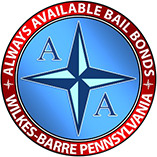Individuals who have been arrested may sometimes be released on their own recognizance, which means they do not have to pay bail. They do have to sign a promise to appear in court as required and may be required to stay in the geographical location and to contact the court regularly to check in. Most cases of being released on one’s own recognizance (ROR) are traffic matters, minor, or technical crimes. In some cases, an ROR is known as “personal recognizance” or a “PR bond.”
States and counties differ in their rules on how to decide who is eligible to be released on their own recognizance. Despite these differences, the following categories or groups of defendants are often eligible to be released on their own recognizance:
Lower Grade Offenders
Most jail officials only want to keep repeat and violent criminals in jail, so lower level, non-violent offenders tend to get priority on personal recognizance bonds.
Indigent Offenders
If a court decides that a defendant cannot afford an attorney, they appoint an attorney on the defendant’s behalf. Also, if they find that the defendant cannot afford a bond, they may grant the defendant a personal recognizance bond so he or she can get out of jail.
Defendants with Serious Medical Conditions
Those with conditions that require weekly treatments may be granted a PR bond so that the county is not liable for the defendant’s medical treatment while in jail.
Defendants with Delayed Charges
If defendants have been held for a long time without a charge being formally filed, they may be released on their own recognizance. Some states cannot keep a defendant for more than 90 days without obtaining an indictment.
Rely on the experienced staff at Always Available Bail Bonds LLC, which serves clients with bail bonds in West Chester, PA, and throughout Eastern Pennsylvania. Call 1-800-BAIL-OUT any time of night or day.


